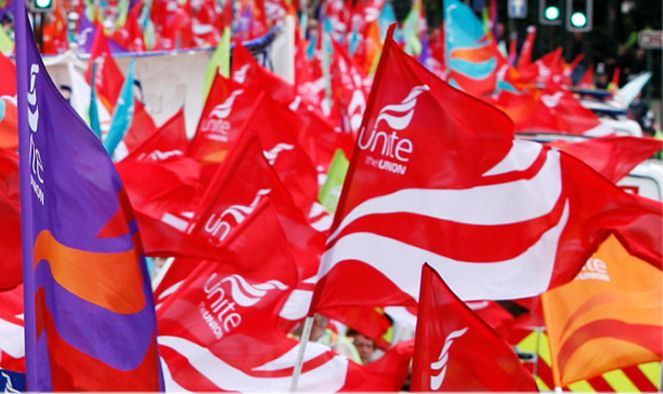Credit debt blues
As millions of Britons settle back into the first few weeks of work following the festive season, we know all too well that the party’s over, the feasts have been eaten, the presents opened and we’re left with a lingering sense that we’ve all had too much.
Or to put it more accurately, we’ve all had enough — enough of a year that has followed year on year of stagnating wages, climbing rents, and ever-higher prices in the shops. And it all hits home hardest on Blue Monday today (January 16), said to be the most depressing day of the year for many reasons, among them accumulation of consumer debt.
Credit debt surge
The latest figures show that credit card debt has ballooned to ÂŁ66.7bn in the year to November, and overall consumer debt including credit cards and car loans is growing at its fastest rate in 11 years, up more than 10 per cent in the previous 12 months and now stands at ÂŁ192bn.
In only a few months time, this figure is estimated to rise above the ÂŁ208bn total of consumer debt that peaked at the onset of the 2008 financial crisis.
But credit card sprees of yore to finance the occasional holiday abroad or a shiny flatscreen TV have morphed in the era of austerity into an altogether different beast — borrowing now is no longer a frivolity but a necessity. Forget about being able to afford Christmas without charging the card; now we can barely afford to live without plastic.
Unite member Martin Groombridge, chief executive of credit union London Capital, argues that the latest credit debt surge is the result of a combination of factors.
“Stagnating wages that have not kept in line with inflation coupled with skyrocketing prices have lead to a cost of living crisis for working class people,” he explained. “While salaries for management have remained healthy and go up each year, the same cannot be said for the vast majority of working people. And so households are forced to borrow to make up the difference.”
Groombridge’s point is reflected in a recent analysis by the TUC, which found that unsecured debt per household rose to nearly £13,000 per household in the third quarter of 2016, which is more than £1,000 up on a year earlier — the highest annual increase since at least 1997.
The TUC notes that unsecured debt as a share of household income is now 27.4 per cent — the highest it’s been in the last eight years.
“These increases in household debt are a warning that families are struggling to get by on their pay alone,” said TUC general secretary Frances O’Grady. “Unless the government does more for working people, they could end the New Year poorer than they start it.
“Employment may have risen, but wages are still worth less today than nine years ago,” she noted. “The government is relying on debt-fuelled consumer spending to support the economy, with investment and trade in the doldrums since the financial crisis.”
Unite rep Gavin Dudley is someone who is all-too familiar with the debt crisis wreaking havoc on the UK — but he’s found a way out.
“My life used to be very different,” says Dudley.
“By the end of the month I would have to go to the pawnbrokers, or apply for a payday loan just to put food on the table. As the only breadwinner in my family, I found it really hard to make ends meet, and of course there was no way I could ever afford to save.
“It becomes a cycle of debt and worry that leaves you feeling sick,” he added. “The bank doesn’t care about you; it’s all short-term solutions that damage your finances and health in the long run.”
From borrowing to saving
Groombridge, whose credit union London Capital helps turn people from being borrowers to being savers explains that there’s nothing inevitable or unchangeable about being deluged by problem debt.
He said that through debt consolidation, his and other credit unions like his can help people halve their debt payments.
“Most of our members go from being borrowers to savers in four to five years,” he noted.
What’s more, credit unions share the same values as trade unionism.
“We actively encourage people to join trade unions — we are a democratic organisation run cooperatively for the benefit of our members,” he explains. “While most big banks have huge gaps between their lowest paid staff and the highest, our ratio is much, much smaller.”
Dudley, who now helps members get access to Unite’s credit union services, says “everything changed” for him when he joined a credit union.
“I signed up and started paying in to a savings account and based on that I can borrow money at a reasonable rate and even set up a repayment plan that works for my circumstances,” he said.
Nick Brown, who is in charge of Unite’s credit union scheme highlights the benefits of the scheme.
“The credit unions offer a service where members can access credit at an affordable rate, as well as offering an effective method of saving,” he said.
“With debt increasing at a frightening rate a lot of our members were struggling to get credit with the banks, and so were being forced into the clutches of the payday loan companies and door-stop lenders.
“The interest rates with credit unions are fixed, and while perhaps slightly higher than the banks, it won’t threaten your household or security,” he said. “Compared to the obscene 3,000 per cent APR lenders, it really is a breath of fresh air for people.”
Here to help
Groombridge says that for those who may be feeling overwhelmed by debt on Blue Monday, he encourages people to talk to their local credit union.
“Credit unions have independent specialists who are there to help,” he said.
He added that he is especially proud of the partnership his credit union has with Unite — many of London Capital’s members are Unite members who were referred to his credit union by Unite shop stewards.
Find out more about Unite’s Credit Union Service here and more about London Capital here.
 Like
Like Follow
Follow


